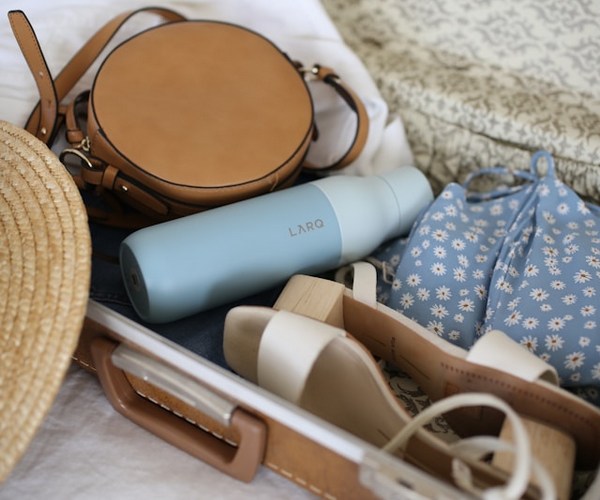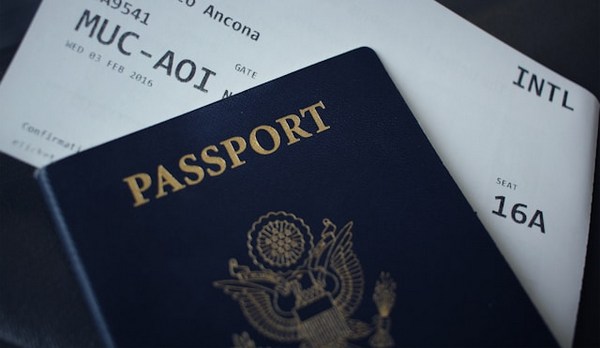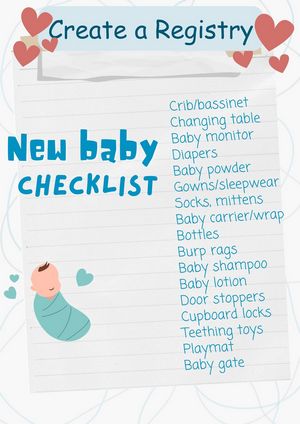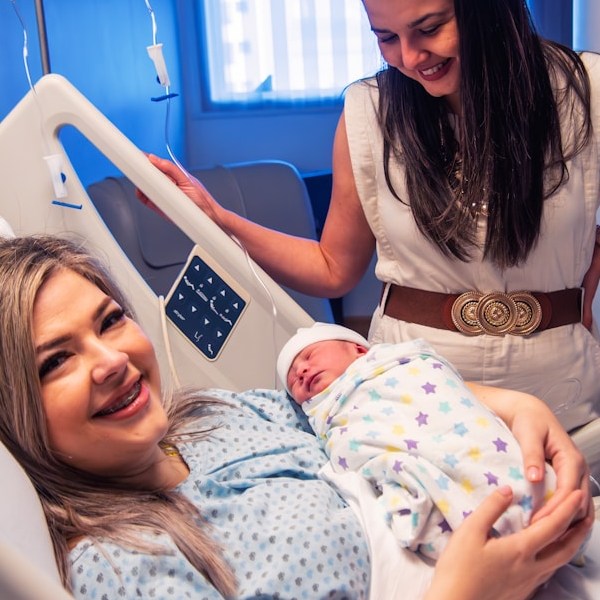Key Takeaways
- Consult Your Doctor: Always discuss travel plans with your healthcare provider to ensure safety throughout your pregnancy.
- Pack Smart: Essential items for pregnant travelers include comfortable clothing, snacks, water, and health documents.
- Maintain Nutrition: Stay hydrated and eat healthy snacks like fruits and nuts to keep energy levels up.
- Comfortable Attire: Wear loose, breathable clothing and supportive shoes to enhance comfort during travel.
- Stay Safe: Prioritize safety by choosing well-known destinations and keeping emergency contacts handy.
Table of Contents
Traveling can be an exciting and enriching experience, but it can also be daunting especially for pregnant women. As much as traveling can be fun, it can also be stressful and tiring, making it difficult to manage if you’re pregnant.
Whether you’re planning a babymoon or traveling for work, these tips will help ensure the best time for you and your unborn baby to travel.
1. Preparing for your journey: Consult your healthcare provider

Your healthcare provider can offer valuable advice tailored to your specific needs and stage of pregnancy. They can assess any potential risks associated with traveling during pregnancy and provide recommendations to help you stay comfortable and reduce any potential complications.
Additionally, your healthcare provider may advise you on necessary vaccinations, medications, and precautions to take while traveling to ensure both your well-being and that of your baby.
It is advisable to schedule a prenatal check-up before your trip to confirm your due date and discuss any necessary precautions or preparations, especially if you have any complications such as preeclampsia, preterm labor, or prelabor rupture of membranes.
2. Pack wisely: Essential items for pregnant travelers

When preparing for a trip while pregnant, packing wisely is recommended to ensure a comfortable and safe journey. Here are some essential items that pregnant travelers should consider including in their luggage:
| Medication | If you have been prescribed any medication by your healthcare provider, ensure you have an adequate supply for the duration of your trip. It’s also a good idea to carry a list of essential contacts, including your doctor’s information. |
| Maternity Clothing | Pack comfortable and loose-fitting clothing that accommodates your growing belly. Opt for breathable fabrics and layers that can be easily adjusted for varying temperatures. |
| Vitamins | Don’t forget to pack an ample supply of your vitamins to support your health and the development of your baby throughout your trip. |
| Health Documents | Bring along copies of your prenatal records, health insurance information, and any necessary medical documentation in case of emergencies. |
| Compression Socks | Reduce the risk of swelling and blood clots by wearing compression socks. These can help improve circulation and keep your feet and legs comfortable. |
| Snacks and Water | Keep yourself well-hydrated and energized with healthy snacks and a reusable water bottle. Opt for nutritious options to keep your energy levels up during your journey. |
| Comfort Items | Consider packing items such as a pregnancy pillow, back support cushion, or comfortable shoes to help alleviate any discomfort during long periods of sitting or standing. |
3. Stay hydrated and nourished: Tips for healthy eating while traveling
Make sure to drink plenty of water with minerals or electrolytes to prevent dehydration.
Pack healthy snacks such as fruits, nuts, and granola bars to keep your energy levels up and satisfy hunger pangs between meals.
When dining out, opt for well-cooked foods and avoid raw or undercooked foods to reduce the risk of foodborne illnesses.
If you have any dietary restrictions or specific cravings, plan ahead and research local food options that cater to your needs. Listen to your body, take breaks when needed, and make wise food choices to support your well-being and the health of your growing baby.
4. Comfort is key: Choosing the right clothing and footwear

Opt for loose-fitting, breathable clothing that allows room for your growing bump and provides ease of movement. Natural fabrics like cotton and maternity-specific clothing can help keep you comfortable throughout your journey.
Consider packing layers to adjust to fluctuating temperatures and to accommodate any swelling that may occur.
When it comes to footwear, prioritize support and comfort over style. Opt for shoes with cushioning and good arch support to reduce strain on your feet and back.
Slip-on shoes or those with adjustable straps can be convenient for frequent trips to the restroom or security checks. Pack a few pairs of comfortable socks to keep your feet warm and cozy during flights or long car rides.
5. Safety first: Tips for staying safe during your travels

Planning ahead and taking necessary precautions can help ensure a smooth and secure experience. Here are some essential tips for staying safe:
Pack a pregnancy travel kit:
- Be sure to pack a pregnancy travel kit that includes essential items such as prenatal vitamins, any necessary medications, snacks, water, comfortable clothing, and a copy of your prenatal records.
- Having these items on hand can help you stay comfortable and prepared throughout your journey, especially in case of emergency.
- It is important to have access to medical care while traveling, so be sure to include a travel health kit with any necessary medications, comfort essentials, and information on where to seek medical attention in case of any complications.
Choose safe destinations:
- When selecting a travel destination, consider factors such as the availability of quality healthcare facilities, access to medical care, and the overall safety of the location.
- Opt for destinations that are pregnancy-friendly and have minimal health risks.
Practice safe travel habits:
- While traveling, be mindful of your surroundings and practice safe travel habits such as wearing comfortable shoes, avoiding strenuous activities, and staying alert in crowded or unfamiliar environments.
- Take precautions to prevent accidents and ensure your well-being.
6. Plan your itinerary wisely: Tips for managing fatigue and rest

When crafting your travel plan, prioritize rest and relaxation. Allow for extra time between activities or sightseeing to rest and recharge.
Consider scheduling shorter outings or activities spread throughout the day, rather than cramming too much into a tight schedule.
Choose accommodations that prioritize comfort and relaxation. Opt for hotels or lodgings that offer amenities such as comfortable bedding, quiet surroundings, and easy access to restrooms.
Additionally, consider the proximity of your accommodations to key attractions or activities to minimize travel fatigue.
Take breaks when needed, stay hydrated, and communicate your needs to travel companions or tour guides.
7. Traveling by air, land, and sea: Tips for comfortable transportation
Check with the airline regarding their policies for pregnant people. Most airlines allow pregnant people to fly up to a certain point in their pregnancy, but restrictions may vary.
It’s also a good idea to choose an aisle seat for easy access to the restroom and to stretch your legs during the flight. Staying hydrated and wearing comfortable clothing are essential for a comfortable journey.
It is important to note that most doctors advise a pregnant person not to fly by commercial flight after 36 weeks of pregnancy, and some airlines may require a medical certificate from a doctor to verify the health of the pregnant person before boarding the plane.
Additionally, for pregnant women traveling by plane, it is important to choose an aisle seat to make it easier to get up and stretch your legs during a long flight.
Whether by car, bus, or train, it’s important to make frequent stops to stretch your legs and avoid sitting in the same position for too long.
Make sure to wear your seatbelt properly and position it under your belly and above your uterus for added comfort and safety.
Bringing snacks and water along with you is important to stay nourished and hydrated throughout the journey, and don’t forget to always wear your seat belt.
It is also recommended to avoid gas-producing carbonated drinks before or during the flight, as gas can expand at high altitudes and cause discomfort. Instead, opt for water to stay hydrated.
When traveling by sea, such as on a cruise or ferry, it’s important to be mindful of motion sickness, which can be more pronounced during pregnancy.
Consider taking motion sickness medication recommended by your healthcare provider before boarding. Choose a cabin with fresh air and natural light to help alleviate any feelings of nausea.
8. Finding accommodations: Tips for selecting pregnancy-friendly options

First and foremost, look for accommodations that offer amenities and features specifically tailored to support the needs of pregnant women.
This may include rooms with easy access to elevators, comfortable bedding, and seating areas, as well as bathrooms equipped with handrails and non-slip surfaces for added safety.
Additionally, consider the location of the accommodations in relation to medical facilities in case of emergencies. It’s important to have quick access to healthcare services, especially during pregnancy.
When booking accommodations, communicate your specific needs and concerns with the hotel or rental property staff. Many places are willing to accommodate special requests, such as providing extra pillows for support or adjusting room temperatures for comfort.
Lastly, consider the overall ambiance and atmosphere of the accommodations. Choose a setting that promotes relaxation and tranquility, as stress-free environments can positively impact both physical and emotional well-being.
9. Managing pregnancy symptoms on the go: Tips for dealing with nausea, swelling, and fatigue
Nausea, swelling, and fatigue are common symptoms that pregnant women may experience, including the common symptoms of morning sickness.
To help alleviate these discomforts, there are several tips and strategies you can implement.
For dealing with nausea, you may pack light snacks. Ginger candies or peppermints can also help relieve nausea.
Opting for frequent small meals and avoiding greasy or spicy foods can further help in managing nausea on the go.
Swelling, especially in the feet and ankles, is a common issue for pregnant women. To combat swelling, wear comfortable and supportive shoes, elevate your legs when possible, and take breaks to walk and stretch during long journeys.
Compression socks or stockings can also aid in reducing swelling by promoting better circulation and preventing the risk of blood clots from sitting for a long time, like on a long flight.
Fatigue is another symptom that pregnant women often face. To combat fatigue, prioritize rest and relaxation during your trip. Plan for frequent breaks to rest and recharge, and listen to your body’s cues to avoid overexertion.
Staying hydrated and maintaining a balanced diet, especially one that is low in carbohydrates, can also help in combating fatigue and preventing high blood pressure while on the go.
When traveling pregnant, stay hydrated, take breaks for stretching, wear comfortable clothing, and consult your doctor before travel. Pack essentials like snacks, medications, medical records, and travel insurance. Avoid travel to areas with health risks or limited medical facilities for pregnant women.
FAQ: Essential Travel Tips for Pregnant Women
Can pregnant women travel safely?
Yes, pregnant women can travel safely with proper planning and precautions. It is always best to consult with a healthcare provider before making travel arrangements, especially for long trips.
When is the best time for pregnant women to travel?
The best time for pregnant women to travel is usually during the second trimester (weeks 14 to 27). During this period, most women experience less nausea and fatigue, and the risk of complications is lower.
Are there any specific travel restrictions for pregnant women?
While there are no universal travel restrictions for pregnant women, certain airlines and cruise lines may have their own policies regarding travel during pregnancy. Always check with the carrier before booking.
What should pregnant women pack for travel?
Pregnant women should pack comfortable clothing, prenatal vitamins, healthy snacks, plenty of water, a copy of their medical records, and any prescribed medications. It’s also wise to bring a small travel pillow for added comfort.
How can pregnant women stay comfortable during long flights or car rides?
To stay comfortable during long flights or car rides, pregnant women should take frequent breaks to stretch and walk around, stay hydrated, wear loose-fitting clothes, and use a seatbelt properly. A travel pillow and support stockings can also help.
Is it safe for pregnant women to travel internationally?
International travel is generally safe for pregnant women if there are no complications. However, it is crucial to check for any travel advisories, ensure vaccinations are up-to-date, and be aware of the medical facilities available at the destination.
What should pregnant women do if they feel unwell while traveling?
If a pregnant woman feels unwell while traveling, she should seek medical attention immediately. It’s important to have a list of healthcare facilities along the travel route and at the destination.
Can pregnant women go through airport security scanners?
Yes, pregnant women can safely go through airport security scanners. The radiation exposure from these scanners is very low and considered safe during pregnancy. If there are concerns, they can request a manual pat-down instead.
What foods should pregnant women avoid while traveling?
Pregnant women should avoid foods that pose a risk of foodborne illnesses, such as raw or undercooked meat, unpasteurized dairy products, and certain types of fish high in mercury. It’s also best to avoid street food and tap water in areas where sanitation is a concern.
How can pregnant women prevent deep vein thrombosis (DVT) during travel?
To prevent DVT, pregnant women should stay hydrated, move around regularly, avoid crossing their legs for long periods, wear compression stockings, and do simple leg exercises while seated.

Childbirth Preparation: Steps for a Smooth Delivery
Key Takeaways Having a solid support system can ease the physical and emotional challenges of labor. Proper nutrition and regular…
Gestational Diabetes Management: Expert Tips for Success
Key Highlights Gestational diabetes, marked by glucose intolerance during pregnancy, requires careful blood sugar control. A healthy pregnancy with gestational…
Postpartum Recovery: What Happens After Childbirth
Key Takeaways Postpartum recovery can take weeks or months depending on the type of birth. Physical recovery includes managing pain,…
Birth Plan Guide: Planning Your Birth Experience
Key Takeaways A birth plan outlines your preferences for labor, delivery, and postpartum care. It helps communicate your wishes to…
Pre-Eclampsia: Causes, Symptoms, and Treatment
Key Takeaways Pre-eclampsia involves high blood pressure and organ damage after 20 weeks of pregnancy. Early diagnosis through regular prenatal…
What is the Best Nutrition for Pregnancy?
Key Takeaways Eating wisely during pregnancy impacts maternal and fetal health. Prioritize foods with a high bioavailability of nutrients. Essential…
Breast Milk or Formula: Which Is Healthier for Your Baby?
Key Highlights Breast milk is ideal for infants, offering essential nutrients, cognitive development support, and immune strengthening. Breastfeeding benefits both…
Natural Childbirth: Pain Management & Breathing
Key Takeaways Natural childbirth focuses on managing labor without medical interventions. Breathing techniques help alleviate pain and keep the body…











